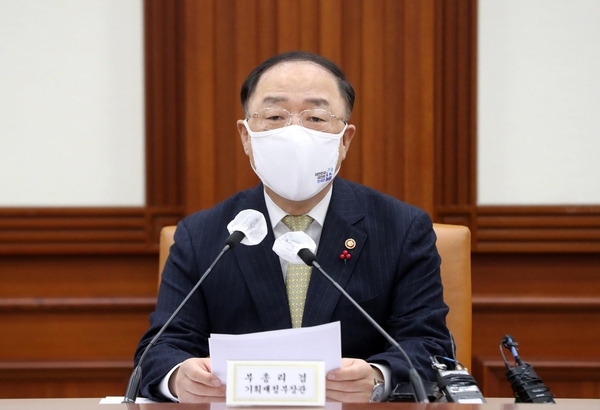Input 2021.01.21 10:45 | Revision 2021.01.21 10:48
Deputy Prime Minister Hong held the ‘3rd Innovative Growth BIG3 Promotion Meeting’ at the government’s Seoul office on the same day and discussed the support plan for the’cultivation of key personnel in the system semiconductor field.’ Deputy Prime Minister Hong said, “The shortage of human resources in the semiconductor industry in the field is around 1,500 per year as of 2019,” he said. “We are complaining of difficulties due to the lack of creative high-quality talent, master’s and doctoral level manpower, as well as working manpower.”

In addition, with the goal of producing 1,000 masters and doctoral-level talents during the same period, the company and the government plan to support the one-seat and three-trillion project of’Core technology development + high-level manpower training + recruitment linkage’ through 1:1 matching. The company plans to support the training of the next-generation manpower based on industry-academia cooperation with a scale of 373 by 2022, and to nurture an additional 165 experts from foundry directors.
Deputy Prime Minister Hong added, “We plan to educate a total of 1,560 working talents by next year by providing short-term education through the Semiconductor Design Education Center (IDEC) and Design Support Center, etc.” to cultivate working talent.
At the meeting, support measures to support the commercialization of the 4th stage of autonomous driving were also discussed.
The government has decided to invest 1.1 trillion won in 84 sub-tasks to support the development of core technologies in the fourth stage of autonomous driving such as sensors and communication technologies such as lidar. In the third stage of autonomous driving, the company will also localize and follow-up commercialization of the 9 core parts that play important functions.
In addition, it will complete the construction of a harsh environment reproduction facility and a local test bed for the performance test of more than 4 stages of autonomous driving within this year. The next-generation intelligent transportation system (C-ITS) to compensate for the detection limit of autonomous vehicle sensors has decided to build 1200 km this year. The government’s goal is to build a total of 30,000 km by 2025.
The government is also promoting the establishment of the C-ITS integrated management center this year. The safety standards necessary for the launch of the fourth stage of autonomous driving will be established, and a research on the insurance system will be initiated.
Deputy Prime Minister Hong said, “This year, global automakers are expected to launch passenger cars with three-stage self-driving technology, while competition for the fourth-stage autonomous driving development is expected to intensify.” We will focus on commercialization.”
